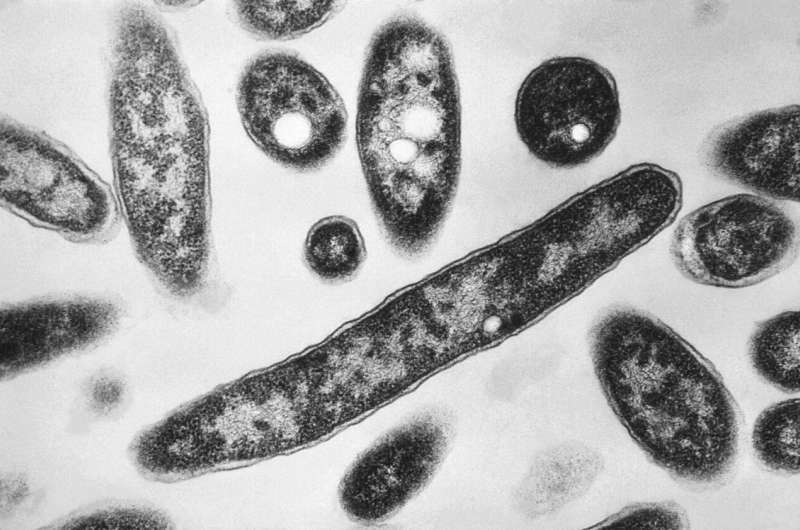This 1978 electron microscope image made available by the Centers for Disease Control and Prevention shows Legionella pneumophila bacteria which are responsible for causing the pneumonic disease Legionnaires' disease. In a report released Wednesday, Aug. 14, 2019, the National Academies of Sciences, Engineering and Medicine said annual cases of Legionnaires' jumped more than fivefold from 2000 to 2017, and that as many as 70,000 Americans get the disease every year. High-profile recent outbreaks occurred in Atlanta and Flint, Michigan. (Francis Chandler/CDC via AP)
Top U.S. science experts are calling for stronger policies to combat the growing Legionnaires' disease problem.
In a report released Wednesday, the experts said annual cases of Legionnaires' jumped more than fivefold from 2000 to 2017, and that as many as 70,000 Americans get the disease every year.
Legionnaires' is caused by bacteria that can thrive in buildings with large water systems. About 20 outbreaks are reported each year, including recent ones at an Atlanta hotel and a hospital near Chicago.
But there is no single set of widely accepted guidelines for preventing infections.
The National Academies of Sciences, Engineering and Medicine report pushes for requirements like minimum temperature levels for hot-water heaters, and registration and monitoring of cooling towers.
© 2019 The Associated Press. All rights reserved.




















